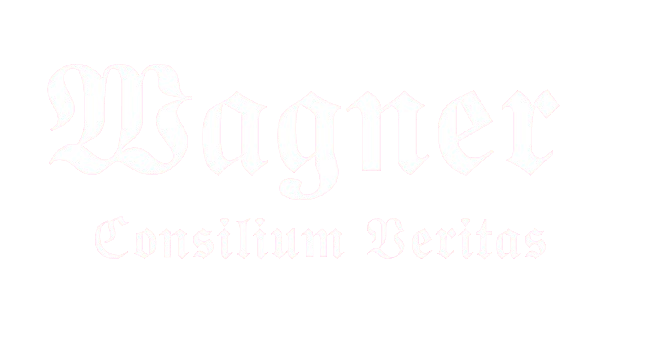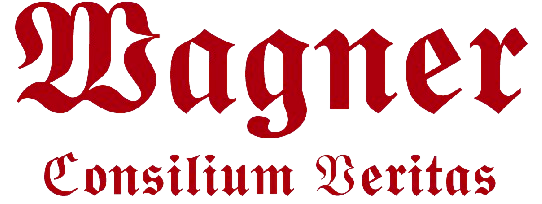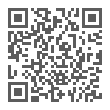
PhD Cand. Mengmeng Guo
| P.R. China | Renmin University of China
Author: Mengmeng Guo
Doctor of Philosophy (PhD) Cand., Renmin University of China
Research Assistant at Stanford University in the USA
Independent Entrepreneur in Trade
Study Results
"Urgent Need for Greater Integration of Science into Politics and Media"
Scientific education is crucial for enlightening the public on scientific topics and fostering an informed society. The term "scientific literacy" was first coined in 1958 to emphasize the need for public understanding of science. Today, scientific education is at the forefront of contemporary education, civic engagement, and cultural dynamics. We conducted a study examining the development of scientific educational literature and forecasting future trends. It becomes evident that there is a hegemony of regional and personal scientific literature, as well as a need for political decision-makers to take more responsibility and increasingly apply science in practice. We used bibliometric analyses and data visualization techniques to create a comprehensive picture of the intellectual structure of this research area.
Development and Key Indicators of Scientific Education
Scientific education can resolve unresolved socio-scientific questions and turn people into responsible citizens. Our research provided insights into the development of scientific educational literature from 1980 to 2019 in specific areas and its influencing factors. Particular focus was given to the two decades before and after the year 2000 due to their significant developments in digitization and global networking. We found that attention to scientific education increased notably after the financial crisis of 2008. The "International Journal of Science Education" and the "Journal of Research in Science Teaching," as well as authors Jonathan Osborne, Rosalind Driver, and Norman G. Lederman, dominated citations in the scientific literature. Furthermore, the literature predominantly emerged in the West, highlighting the need to understand other cultural perspectives. Recently active knowledge areas include literacy, learning progress, and informal thinking. However, in the last ten years (2009-2019), there have been no new research trends, despite the revolutionization of communication channels through digital media. This highlights the issue when dominant literature is cited instead of utilizing the innovative power and creativity of other researchers, particularly from other countries.
Methodology and Analysis
Bibliometric analyses offer researchers the ability to quantitatively analyze scientific knowledge and identify patterns and their developments. This method helps to identify the knowledge frontiers and intellectual foundations of disciplinary knowledge. Data visualization and network analysis were carried out with the support of CiteSpace, a Java-based data visualization tool that supports big data analyses. CiteSpace uses algorithms such as "minimum spanning tree," "pathfinder," and "expectation maximization," and is compatible with leading indexing services like Thomson Reuters’s Web of Science and Scopus. The data collection was done from the Scopus database, which includes high-quality research on scientific education. Our analysis covered 9,578 bibliographic records from the years 1980 to 2019. The results show that most contributions come from North America, with institutions like the University of California, Berkeley, and King's College London dominating. Among the most active journals were the “International Journal of Science Education,” the “Journal of Research in Science Teaching,” and “Science Education.” Over 50% of the funding institutions are based in North America, including the Australian Research Council and the European Commission.
Key Works of Science and Turning Points
Through the analysis of co-cited references, the most important documents and their connections were identified. Among the most frequently co-cited articles are Bonney et al.'s "Citizen Science: A developing tool for expanding science knowledge and Scientific Literacy," which emphasizes the importance of citizen science, and the National Research Council’s report with the "National Science Education Standards," which highlights the necessity of standardized scientific educational standards. Osborne and Dillon in "Science Education in Europe: Critical Reflections" questioned science education in Europe and made recommendations for its improvement. The analysis of evolutionary hotspots showed that certain documents, such as Bauer's "Scientific Literacy and the Myth of the Scientific Method" (1992), functioned as turning points in the development of scientific educational literature. These works emphasize the importance of science and technology in modern life and critique the effectiveness of existing educational reforms.
The burst analysis identified documents that were intensively cited during specific periods, indicating their importance in the development of scientific education. Key documents include Dickinson et al.'s "The current state of citizen science as a tool for ecological research and public engagement" and Roth and Barton's "Rethinking Scientific Literacy: From Science Education as Propaedeutic to Participation in the Community." Cluster analysis helped to group related cited references and identify weak connections. Through cluster analysis, the dominant themes and developments within the scientific educational literature were highlighted.
Future Trends in Scientific Development and Definition
Our research shows that scientific education sparked economic productivity as a primary concern, which prompted further research related to cognition and cognitive apprenticeship. This initiated parallel research streams on informal learning, social knowledge, tool development, and learning styles. Today, scientific education and its components, as well as reasoning, are regarded as the most valuable areas of intellectual growth.
Some additional interesting findings are that the literature lacks a consensus on the definition of scientific education and that the dominant authors have diverse educational backgrounds. The motivation to learn about science has a mediating effect on the use of technology and trust in the media. Our study also highlights that new trends and new fields of study are emerging globally. However, the origin of publications continues to be dominated by North America, significantly affecting the appreciation and future development of academic literature related to scientific education. It is important to note that 96% of scientific education-related literature is written in English, which presents challenges for effective and fruitful reforms and developments from a global perspective, while simultaneously simplifying and facilitating communication.
Although researchers have raised important questions for future research, this study highlights the following trends that can be predicted for the future: In the past 20 years, the development of tools for scientific education in the context of formal and informal education has rarely been distinctly studied by academics, educators, and policymakers. The strategic use of scientific education in proposing mitigation or coping strategies for socio-scientific issues is still lacking. The relationship between scientific education and behavioral models is necessary. In the most populous regions of the world, responsible citizen behavior and the development of a resilient community are crucial. Cultural diversity requires rethinking the attributes of scientific education in emerging economies. The technological revolution has transformed the communication medium and influenced individuals' learning styles and cognitive abilities. Technological advances could play a decisive role in the future, but they also have a dark side that affects people's cognitive and reasoning abilities.
Implications for Academics and Policymakers
Our study has implications for academics and policymakers. Academics should highlight and understand the development of academic literature. The curriculum within the contemporary framework of scientific education improves public understanding of science, yet there are still gaps in the implementation of scientific self-efficacy. This transformation could be facilitated by the strategic use of immersive media. For policymakers, such studies can help to reconsider and improve issues related to the science curriculum, public understanding, and science communication. Sciences receive significantly more attention from academics, and the literary development within the intellectual structure of scientific education continues. However, this is not the case with policymakers, media, or the general public. Thus, there is a convergence of citizen science and technology-related research focuses within scientific educational literature, which centers on socio-scientific issues. This convergent trend should include other phenomena related to sustainable behavior to help citizens become smarter and more responsible actors in a sustainable society. In summary, the development of scientific education-related literature is strongly influenced by the contextual factors of sponsors and authors. A comprehensive framework for active communication and synchronization between educators, policymakers, and relevant public entities is required to efficiently design, test, and deliver research-based and standardized


